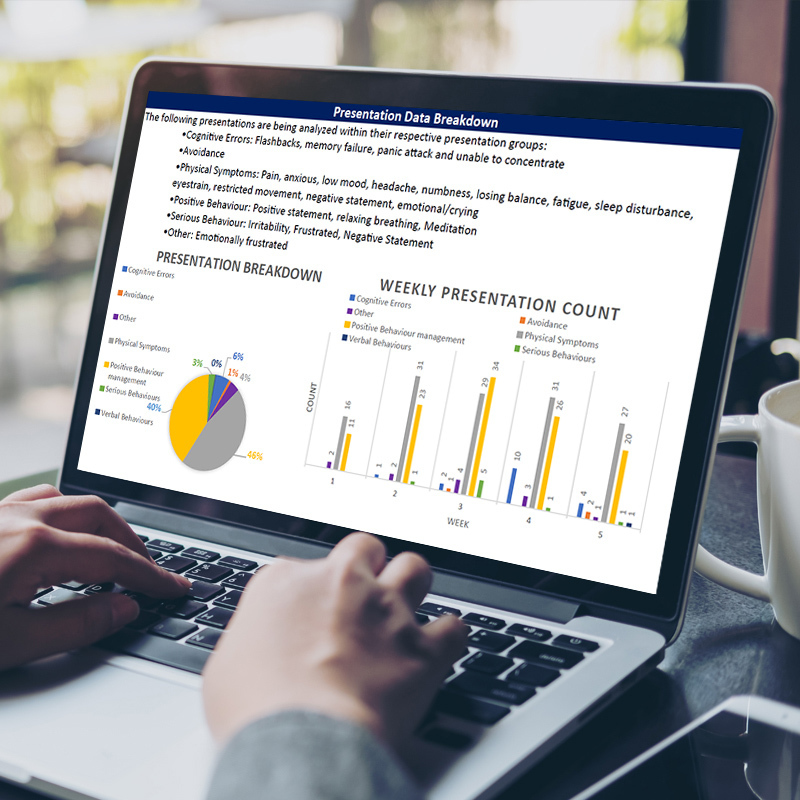
Why is data important in providing innovative solutions?
Data-driven insights can help to improve the quality of people’s lives and rehabilitation outcomes. The healthcare environment, in particular, is advancing through the technological shift by adapting to data-driven digital health.
Collection of objective data during rehabilitation can help clients receive individualized quality care and fair outcomes. Here are eight reasons why we think data can be applied in the rehabilitation programs.
Improving People’s Lives
Real-time data collected during rehabilitation treatment can help in understanding client’s health behaviour, symptoms and circumstances. These insights may influence their recovery outcomes. The rehabilitation providers can use the data-driven insights of behavioural trends to optimize client’s recovery and improve the quality of their lives.
Making Informed Decisions
Good data provides us with objective evidence that can be transformed into client’s needs and progress. This can be used to make treatment or care decisions.
Context for Setbacks
Monitoring of data is essential in avoiding issues that could lead to detrimental health outcomes. The use of real-time data to monitor trends in client care can be used proactively to help the clients access quality care and improve their functional status.
Optimizing Outcomes
Data allows us to measure the effectiveness of the treatment or strategies used to enhance patient outcomes. Rehabilitation providers can be better informed with insightful analysis of objective data. This can provide short-term and long-term solutions for client’s needs.
Demonstrating Key Relationships
Data allows us to assess broader relationships that impact the quality of care. The use of objective data from multiple health care professionals can allow rehabilitation professionals to see key interactions. These insights would show relationships within the client’s day-to-day activities and presentations. These key relationships can further help to understand clients’ progression towards recovery.
Client Advocacy
Accurate data is crucial to supporting the need for proper client care. Objective and reliable documentation from professionals has an instrumental role in demonstrating the need for access to quality client care. Collectively, we can help empower the healthcare system to optimize client recovery.
Efficiency
Data allows us to increase efficiency by providing us with information about what is working or not working for the client. Having the flexibility of catering towards the changing needs of our clients is essential and most effective for digital-health rehabilitation platforms.
Tracking Progress
Collecting data allows us to set goals and outcomes that are unique to each client. Historical data can allow digital-health platforms catering towards rehabilitation to set benchmarks that can be used to implement long-term goals.
Optimize Recovery With Data-Driven Results
A rehabilitation intelligence platform can allow treatment teams and care partners to harness the power of objective data. As we continue to evolve in our technological advancements, rehabilitation platforms can serve as a valuable tool for improving the healthcare outcomes for the Canadian population.
Study Link:
https://www.c-q-l.org/wp-content/uploads/2019/12/12-Reasons-Why-Data-Is-Important.pdf